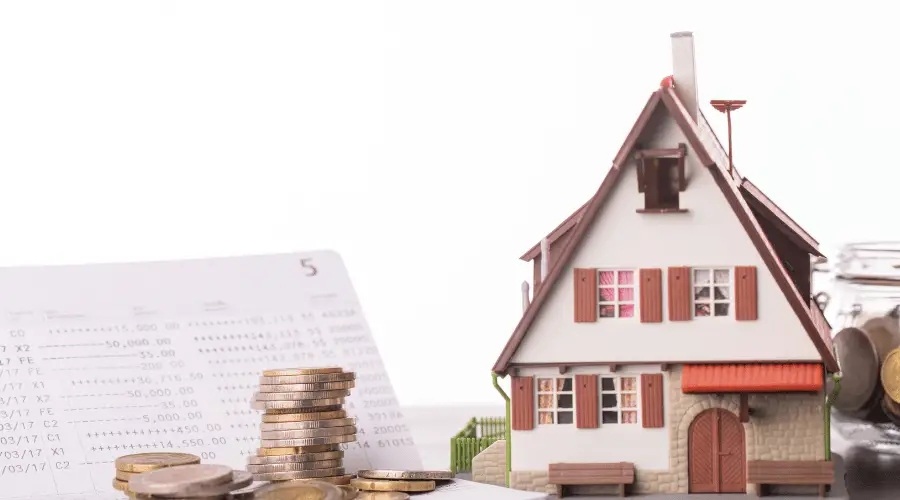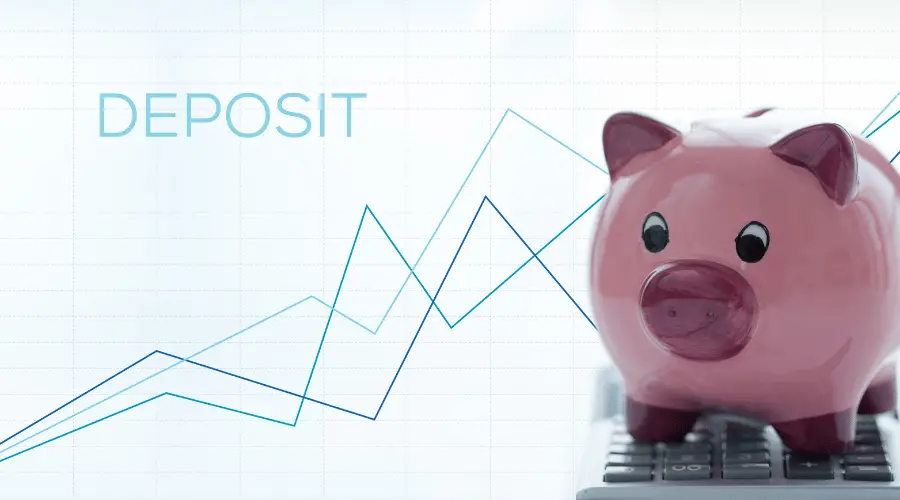Getting together the funds for a house deposit is difficult, particularly with the huge increase in house prices over the previous few decades. One option people turn to is selling their investments to fund their home deposit – but is this a smart financial move?
Selling your investments can be an efficient way of getting together the cash for a house deposit. Many people invest purely for this purpose so that they can one day sell the investments to buy a home. This strategy is not without its downsides including the tax implications and loss of compounding.
So if you are in the position of getting together a deposit for a downpayment on a property and are considering selling some or all of your investments to fund it, read the following post for everything you will need to know (estimated reading time: 8 minutes)
Should I sell my investments for a house deposit?
Whether to sell your investments to fund a house deposit is clearly a very personal choice and will be largely dependent on your financial goals and strategies, other available cash and your desire to purchase a home.
There are numerous advantages of purchasing a property rather than renting (which will be explored further below) but getting together the necessary cash to put down a 10-20% deposit on a property can be challenging, not least with the high house prices relative to most people’s salaries.
For this reason, many choose to invest a portion of their income in assets like stocks, bonds or property to benefit from the higher expected returns than leaving the money sitting in a bank, collecting small amounts of interest.
If this is something you haven’t considered yet, click on the below hyperlink to read my post on how to get started on investing in index funds in the UK, which, in my opinion, is the easiest and safest way to invest for a beginner.
Start investing in an ISA in the UK with Vanguard: A how to guide
So whilst there is nothing inherently wrong with selling your investments to fund a house deposit, there are a few pitfalls to look out for – namely the possible tax implications and the possibility of selling your investments at a loss or preventing your investments from compounding over time.

Advantages of selling investments to fund a house deposit
The big advantage of selling your investments to fund a house deposit is the speed this affords. Buying a house can be competitive so putting in offers quickly can be the difference between securing a house or not.
As part of buying a house, you will have to prove you have sufficient funds to cover the deposit (which is usually at least 10% in the UK). If you have liquidated your investments and have this cash sitting in a bank account, this is an easy task.
Without selling your investments, you are purely reliant on saving a portion of your income each month and gradually building this up over time which can be a slow process.
Let’s say you wanted to purchase a £300,000 house with a £30,000 deposit and you are only able to save £500 a month towards a house deposit. It would take you 60 months (5 years!) to save the full £30,000 needed. Being realistic, most people aren’t in a position to save this amount each month and you would be doing very well to be saving this portion of your income.
However, if you had been investing these savings in say the stock market, they would be benefiting from investment returns and this money would be able to grow to the required £30,000 much faster.
Disadvantages of selling investments to fund a house deposit
The main disadvantage of selling your investments to fund a house deposit is the negative impact on your investment returns this would have.
If you had £30,000 invested in a stocks and shares ISA that was returning 10% a year, that would be producing you £3,000 worth of returns each year which would quickly grow and compound over time.
By selling these investments, you are preventing this possible compounding and capital growth.
Another risk is that due to the timing of your house purchase, you are forced to sell your investments at a low. We are all familiar with the common investing advice to ‘buy low, sell high’ but if you need the money on a certain date, you may be forced to sell when the market conditions aren’t favourable.
This can wipe out a lot of your progress with investing. As we know, investments fluctuate and any losses are only ‘locked in’ when you sell the underlying investments. For people not selling their investments to fund a purchase, they can ride out these lows.
Tax implications of selling stocks to fund a house deposit
The other risk around selling your investments is the possible tax implications.
In the UK, when you sell assets above a certain threshold, you are charged capital gains tax. Each individual has a capital gains tax free allowance of £12,300 at the time of writing which means you can sell assets which incur gains of up to this amount without incurring tax.
For example, if you bought an item for £10,000 and sold it for £22,300, you would have made a ‘gain’ of £12,300 but this is all covered by your tax free allowance.
However, if you bought another item for £5,000 and sold it for £12,000, you would have a £7,000 gain which would be liable for capital gains tax (CGT) as you have already used up your allowance.
Capital gains tax is 20% on most chargeable assets so in the above example, you would pay £7,000 * 20% = £1,400 in tax on this gain.
Applying this to our situation, if we had invested £10,000 of our money and it had grown to £30,000 at the time we sold the assets for our house deposit, we may have capital gains to pay.
£30,000 – £10,000 = £20,000 gain.
£20,000 gain – £12,300 tax free allowance = £7,700 chargeable gain
£7,700 chargeable gain * 20% = £1,540 tax bill.
£30,000 in assets sold – £1,540 tax bill = £28,460 available for a house deposit.
This may cause an issue if you need the full £30,000 for your house deposit and is often something overlooked.
It’s worth stating, if all of your investing is through a stocks and shares ISA, you will not be liable for capital gains tax on any investments you sell. This should be a part of your investment strategy and I would advise reading the below linked post on this subject to avoid the above issue.
Is buying a home rather than renting a smart choice?
Convential wisdom is that it is smart to purchase a home rather than continually renting because with renting, you are paying money out each month without getting an asset it return, it’s simply exchanging money for the benefits of the house.
With buying a home, you pay towards your mortgage which means you gradually decrease your debt, so your net worth goes up and you have greater equity (ownership) in your property.
Buying a home also allows you to decorate it and change it as you please, which isn’t the case with renting.
However, there are benefits to renting too. Renting is far more flexible so if you decide to change location or even countries, it’s much faster to terminate a lease than sell a property.
With renting, any major issues with the property are the responsibility of the landlord. For example, if you had a bad leak, the landlord would be liable to fix this whereas with a home, you will have to shell out for the repairs.
When most people buy a house, they put down a deposit of say 10% and mortgage the rest with the bank. Having this much debt can be difficult. If you fall behind on your mortgage repayments, the bank can repossess your home. So given this fact, do you really ‘own’ it?

How easy is it to liquidate investments?
How easy it is to liquidate your investments depends on what they are. For example, to liquidate stocks and shares holdings is usually pretty easy, you simply sign into your investment account and sell them and you should receive the cash in a few days.
Other assets, like properties or ownership stakes in small businesses are likely to take much longer to liquidate.
As mentioned above, the tax implications of selling these items also needs to be considered prior to the sale, this may involve consulting a tax accountant which can add some time to the sale process.
Which investments should I liquidate and which should I leave?
Deciding which investments to liquidate will come down to two main factors; speed and opportunity cost.
If you need cash quickly to secure a house deposit, you will want to liquidate your assets that are easiest and fastest to sell such as stocks and shares holdings.
However, if you are not in a rush, you may choose to sell your poorest performing investments and leave your investments in place that are earning the best returns.
As always, please remember I am an Accountant, but not your Accountant. In this post (and all of my others) I share information and often give anecdotes about what has worked well for me. However, I do not know your financial situation and do not offer individual financial advice. If you are unsure of a particular financial subject, please hire a qualified financial advisor to guide you.
This article has been written by Luke Girling, ACA – a qualified Accountant and personal finance enthusiast in the UK. Please visit my ‘About‘ page for more information. To verify my ACA credentials – please search for my name at the ICAEW member finder. To get in touch with questions or ideas for future posts, please comment below or contact me here.
